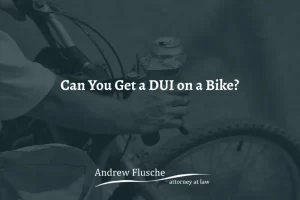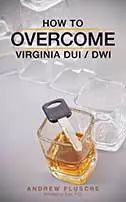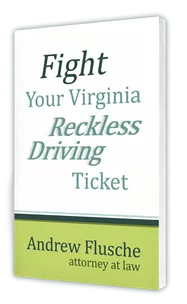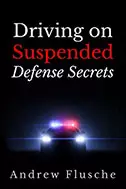Can You Get a DUI on a Bike?

However, Virginia’s driving while intoxicated rules under Code of Virginia § 18.2-266 apply to those who drive or operate a motor vehicle, engine, or train while under the influence of alcohol.
Although bicycles are not motor vehicles for the purposes of Virginia’s DUI/DWI laws, there are other charges you could face when riding your bike under the influence of drugs or alcohol.
If you have been cited or charged with offenses related to the operation of your bike, you should consult with a Virginia reckless biking and DUI attorney to discuss your defense.
What Vehicles Can You Get a DUI On?
You cannot get a DUI on a bicycle in Virginia because bikes are not classified as motor vehicles. Virginia’s DUI laws apply only to motor vehicles, meaning operating a bicycle under the influence of drugs or alcohol does not result in a DUI charge. However, other charges, such as public intoxication, may still apply.
It is never wise to go biking under the influence. Alcohol is a significant factor in traffic crashes, and crashes involving alcohol are more likely to result in injuries and fatalities than collisions where alcohol is not a factor.
However, if you have been accused of drunk or impaired driving in Virginia, you maintain the right to assert a defense to these charges.
Asserting a viable defense requires a comprehensive understanding of the Commonwealth’s DUI statute.
Can You Get A DUI On An Electric Scooter?
In Virginia, electric bikes (e-bikes) are regulated like bicycles. As such, the same road rules apply to both e-bikes and manually-powered bicycles.
Virginia designates three classes of e-bikes:
- Class 1: Bicycle equipped with a motor that provides assistance only when the rider is pedaling.
- Class 2: Bicycle equipped with a throttle motor that stops providing assistance when the e-bike reaches 20mph.
- Class 3: Bicycle fitted with a motor that provides assistance only when the rider pedals and stops assisting when the e-bike reaches 28mph.
Although, on its face, Virginia’s DUI laws do not apply to e-bikes, various federal, county, and local trails may impose rules on e-bike operators.
Can You Get a DUI on a Scooter?
Virginia Code § 18.2-266 explains that the term “motor vehicle” includes mopeds that a driver operates on public highways.
Under the law, a moped is a vehicle with the following characteristics:
- It travels on three wheels or less;
- The moped has a seat that is no less than 24 inches in height when measured from the ground to the middle of the seat; and
- It has a gasoline, electric, or hybrid motor that displaces less than 50 cubic centimeters (or 50cc).
Therefore, any 2-wheeled vehicle with an engine smaller than 50cc and a top speed of 35 mph is legally considered a moped in Virginia. So you could get a DUI on a scooter if your scooter meets those qualifications.
Moreover, under the code, a “highway” refers to “the entire width between boundary lines of every way or place open to the use of the public for the purposes of vehicular travel.”
In essence, a moped rider could be held liable for DUI, except if they were operating their moped on private property.
Video: DUI Suspension Prohibits Any Engines

Reckless Biking Charges
While Virginia law does not consider bikes as motor vehicles for the purposes of the Commonwealth’s DUI laws, bicyclists could face charges for reckless driving.
A law enforcement officer may issue reckless biking citations when a biker is engaging in the following types of conduct:
- Riding their bike in a way that endangers life, limb, or property;
- Failing to maintain control over their bike because of faulty brakes;
- Passing another on the crest of a curve or grade;
- Passing at a railroad grade;
- Passing a stopped school bus;
- Failing to give appropriate signals; or
- Failing to yield.
A reckless driving summons can result in the need to pay fines and appear in court. A reckless driving summons can also hold many collateral consequences impacting other areas of your life.
Defenses to DUI Charges in Virginia
You might wrongly assume that a court will dismiss reckless driving charges if you were on a bike instead of a motor vehicle. However, Virginia courts take reckless driving charges seriously.
If the government can establish that you violated one of the Commonwealth’s reckless driving statutes, you could be convicted of a Class 1 misdemeanor.
The defense to a reckless driving charge largely depends on the facts and circumstances of the case. Let’s look at some common defenses to Virginia DUI charges.
Invalid Stop
Law enforcement officers must have reasonable suspicion to stop an individual for drunk or impaired driving.
An experienced defense attorney can assert a reasonable suspicion challenge in cases where the officer unlawfully stopped the accused.
Invalid Arrest
Officers must have sufficient evidence before arresting someone for reckless driving or DUI. A defense lawyer can assert a probable cause challenge in cases where an officer lacked the requisite cause to arrest someone.
Challenging Sobriety Tests and Results
Officers may conduct sobriety and physical tests to determine whether the driver was impaired. An attorney can challenge the field test, eye test, breath test, and even the blood test results.
Raising a BAC Defense
Defense attorneys may assert a “rising blood alcohol content (BAC)” defense.
This defense relies on the theory that your BAC could have been below the legal limit while you were operating your vehicle or bike but increased above the limit by the time your blood was tested.
An attorney can secure an expert witness to support your argument.
Finally, many DUI defenses assert constitutional violations during the traffic stop and throughout the driver’s arrest.
Video: Cop Arrests INNOCENT Client for DWI

Speak with an Experienced DUI Defense Attorney About Your Case Today
If you were recently arrested for a Virginia DUI, it is important that you have an experienced criminal defense attorney at your side every step of the way.
Andrew Flusche, Attorney at Law, PLC, consists of aggressive and knowledgeable advocates with decades of experience helping good people resolve serious DUI charges with as little negative impact on their life as possible.
Whether we are litigating a pretrial motion to keep chemical tests out of evidence, negotiating a plea to reduced charges, or arguing your case in front of a jury—we have what it takes to reach the best possible result in your case.
To schedule a free consultation today, call 540-318-5824. You can also reach us through our online contact form.




